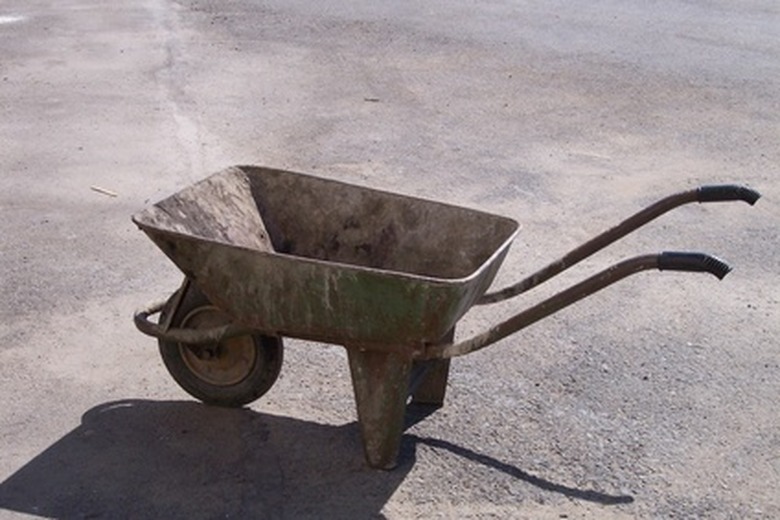DIY Electric Wheelbarrow
Things Needed
- Wheelbarrow
- Electric leaf blower
- Screwdriver
- Rubberized grips
- Drill with metal-ready bit
- Bolts
Wheelbarrows are used by many gardeners and groundskeepers to quickly and efficiently transport tools and soil. However, traditional wheelbarrows can often become heavy when in use, and maneuvering them up inclines or across difficult terrain can be a challenge. One solution to this problem is to modify your manual wheelbarrow by adding an electric motor. This can greatly increase the usability of the wheelbarrow, particularly by people who have difficulty lifting or low mobility.
Step 1
Disassemble the leaf blower using your screwdriver. Begin by removing the outer housing. Continue until you find a unit that resembles a squat, metallic cylinder attached to a fan with many blades. This motor/fan unit is the heart of the leaf blower. Remove it, taking care not to damage the electronics involved in turning the motor on.
- Wheelbarrows are used by many gardeners and groundskeepers to quickly and efficiently transport tools and soil.
- However, traditional wheelbarrows can often become heavy when in use, and maneuvering them up inclines or across difficult terrain can be a challenge.
Step 2
Remove the blades from the fan. With the blades gone, a small cylindrical hub should be all that remains of the fan. Coat the hub with your rubberized grips.
Step 3
Briefly turn on the motor to test that it still works. Take note of which direction the hub rotates when the motor is operational.
Step 4
With the wheelbarrow upside down, position the motor-hub unit on the wheelbarrow's underside so that the rubberized hub is firmly in contact with the front wheel of the wheelbarrow. The orientation of the motor-hub unit should be such that when the motor is activated, the hub turns in the same direction as the front wheel of the wheelbarrow turns when the wheelbarrow is moving forward.
- Remove the blades from the fan.
- Take note of which direction the hub rotates when the motor is operational.
Step 5
Using your drill with metal-ready bit and bolts, securely bolt down the entire unit to the underside of the wheelbarrow. Everything should be held firmly in place. The unit should not budge or sway even when the wheelbarrow is accelerated violently.
Now, whenever you encounter difficult terrain, a heavy load or a steep incline with your wheelbarrow, turn on the motor the same way you used to turn on the leaf blower. This will bring electric power to the front wheel, taking much of the physical burden off of you.
Tip
Continue to charge your new electric wheelbarrow the same way you used to charge your leaf blower. Consider attaching the start switch for the electric motor to one of the handles of the wheelbarrow so that you can engage electric power quickly whenever the situation demands it.
Warning
When disassembling your leaf blower, make sure it is unplugged and take care not to puncture or short circuit the battery. Failure to do so could lead to a potentially serious shock.
